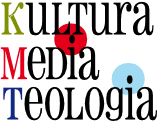How to become an author?
The internet quarterly magazine „Culture – Media – Theology” is a reviewed academic periodical published online by the Theology Faculty of UKSW in Warsaw. Articles are published as pdf files, ready for self-printing. Publishing on the Internet entails wider outreach to potential readers, and thus a higher citation rate.
All articles published in the quarterly are reviewed. The publication is included on the official list of scored periodicals, published by the Ministry of Science and Higher Education for 2013 (the B List).
Articles published in CMT receive 20 points.
By “academic article” we mean “an article which present the results of empirical, theoretical or analytical research, includes the title of publication and the names of the authors with their affiliation, and presents current level of knowledge, research method, the course of the research process, its results and conclusions, together with a list of quoted literature (bibliography). Monographic, polemic or review publications, as well as legal glosses and commentaries, published in academic publications are also considered academic articles.”
Procedure and rules for reviewing
- 1. Submitted copy is initially reviewed by the editors.
- 2. The editors use the rule of double- blind review, according to which neither author nor reviewer know their respective identities.
- 3. Two external reviewers are appointed to review each article. In the case of foreign language copy, at least one of them is affiliated with a foreign institution located in a country different from that of the author’s country of origin. The reviewers:
- a. Are not members of an editorial board or Research Council of the institution the author of publication is affiliated with
- b. Are competent in the given discipline and have at least a PhD and appropriate scientific achievements
- c. Enjoy an unblemished reputation as researchers
- d. Do not have conflicts of interest with the author, i.e. direct personal relations (blood relations to the second degree, legally recognized relations, marriage), and formal workplace subordination, or direct academic collaboration, in the course of the two years which preceded the year of the writing of the review.
4. Reviewers are obliged to maintain confidentiality of opinion and non-disclosure concerning the article being reviewed.
5. The review is submitted on a form made available by the editors, and must end with an unequivocal recommendation to publish the article or not.
6. The reviewers comments are conveyed to the author. Rational and justified recommendations presented in the review are binding for the author. He or she is obliged to taking into account the reviewers comments and correct the text. The author is entitled to having the amended text reviewed again. If the author disagrees with the reviewer’s conclusions, he or she can present his/her own opinion to the editors in a polemic note.
7. The decision to publish the text is made by the editor in chief, after asking the opinion of the Editorial Board and possibly the Research Council. It is based on analysis of comments and conclusions contained in the reviews, the author’s polemics, if any, and the final version of the text.
8. It is the accepted custom not to remunerate the writing of reviews.
9. The names of the reviewers of individual articles are not revealed. A list of reviewers cooperating with the quarterly’s editorial board is published annually (in pdf) at the end of the year’s last issue.
The online pdf file constitutes the original (referential) of the publication.
“Ghostwriting” barrier and academic reliability
The CMT editorial board reminds authors that “ghostwriting” and “guest authorship” are examples of scientific misconduct, and every case found, as well as other violations of academic ethics, will be documented and denounced, including notifying relevant institutions (employers, learned societies, the association of academic publishers etc.). In order to avoid such occurrences, the CMT editorial board requests that authors reveal the actual contributions to the publication (including identifying affiliation and contribution, i.e. the authorship of the concept, assumptions, methods and so on used in the preparation of the publication). This is why, in cases of multiple authorship, it is necessary to precisely identify, through appropriate statements, the contributions of the different authors to the overall copy submitted. The author submitting the copy bears principal responsibility.
Preparing articles
How to write a scientific article
Basis instructions on how to prepare article
Articles and questions could be sent to kmt.uksw@gmail.com
